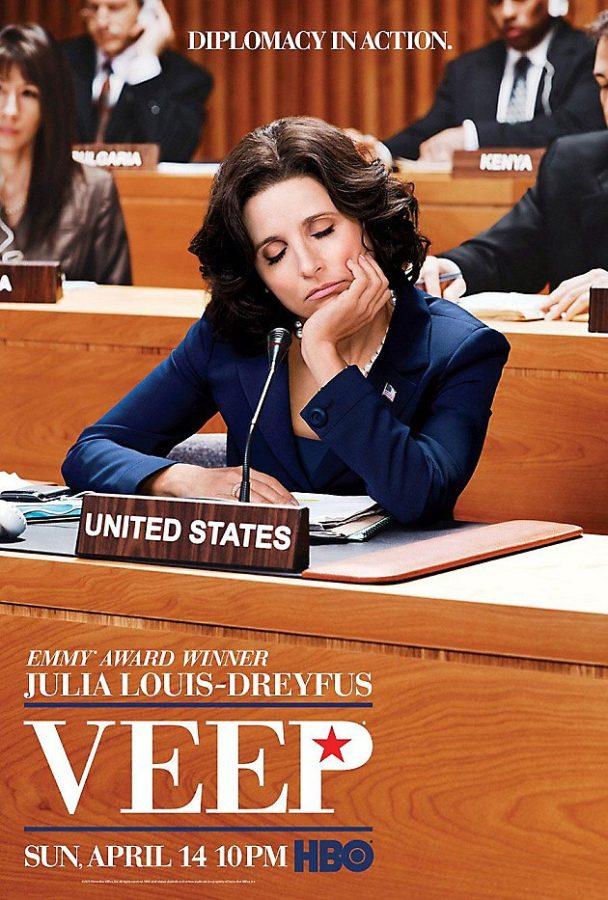Political television is popular, regardless of genre. From news programs produced by Fox News and MSNBC to fictional dramas like “The West Wing” and satires like “Parks and Recreation,” viewers have a plethora of choices for political entertainment.
The real world of politics is densely layered and provides writers and showrunners with plenty of diverse material to work with. Currently, “Scandal” and “Veep” serve as two very different angles from which to view political life, and both have found success in the crowded TV landscape.
With 10.57 million viewers tuned in and on the edge of their seats, ABC’s “Scandal” wrapped up its third season on April 17. The show stars the great Kerry Washington as Olivia Pope, a D.C. insider who runs a crisis management firm. She spends her days and nights putting out the fires set by sleazy senators and unfaithful congressmen, but struggles to quell the problems in her own personal life.
Her character is inspired by Judy Smith, a co-executive producer on the show. Smith was formerly a special assistant for the administration of former U.S. President George W. Bush, before starting her own crisis management firm called Smith & Company. But Pope is at best a loose interpretation, as “Scandal” does not concern itself with realism.
It has been often compared to Netflix’s political drama “House of Cards.” The two shows are similar in that they both feature high-consequence political scandals and strong protagonists, but “Scandal” has one distinct advantage — it accepts what it is.
“House of Cards” runs into problems when it tackles the weird or ridiculous. It’s hardly realistic, but has a false sense of realism about itself that holds it back. To the contrary, “Scandal” is the epitome of batshit storytelling. It doesn’t just feed off shock-value, it thrives on it. The ridiculousness is what makes it appealing and what makes it stand out. In the highly deceptive world of politics, it’s refreshing to see a show that’s so honest with itself.
The same could be said of HBO’s hit comedy “Veep,” which returned for its third season on April 6. It stars Julia Louis-Dreyfus as fictitious Vice President Selina Meyer. The show is smart in how it pokes fun at the political system. Unlike many shows and movies that depict politics as a cutthroat game of winners and losers, “Veep” conveys that most people working in politics are incompetent. It’s “Parks and Recreation,” but on the federal level.
After stumbling through an up-and-down first season, “Veep” really hit its stride in season two. Its big problem was that it was unable to nail down Meyer in a way that captured her incompetence, but also made her sympathetic. She was too dumb and unlikable. The show fell closer to “Hello Ladies,” an HBO comedy canceled mainly because the main character was too unlikable, than it did to “Curb Your Enthusiasm,” which starred the great Larry David as a man both reprehensible and hilarious. This was also noted by Slate’s David Weigel when he reviewed the second season of “Veep.”
“Last year, in every episode of ‘Veep,’ Vice President Selina Meyer (Julia Louis-Dreyfus) delivered the saddest catchphrase on TV. She’d return to her office or seek solace after a photo op was waylaid by gaffes, and she’d ask a secretary: ‘Did the president call?’ He never called. That was the joke,” Weigel said. “It was the final injury piled upon insults, like watching Tom get bested by Jerry for 30 minutes, then learning he has gout.”
But that problem no longer exists. The second season of “Veep” was excellent and the first few episodes of the third have been as well. It’s a satire, but it needed to take itself a bit more seriously. It does that now, with Meyer chasing a presidential nomination. The show has a direction; it’s no longer just berating its main character.
Politics are kind of like sports; people pick a team and root hard for it. For the most part, you’re a Democrat, a Republican or neither. “Scandal” and “Veep” are hardly the only good political shows currently going, as “The Good Wife” and “Homeland,” among others, are also thriving. But they exemplify how the spectrum of political television allows for different kinds of shows with wide-ranging appeal.
Almost everyone can find political shows entertaining, even if some of them lean one way or the other ideologically. Most political content is polarizing. Political TV is all-inclusive.
@tarmosino









